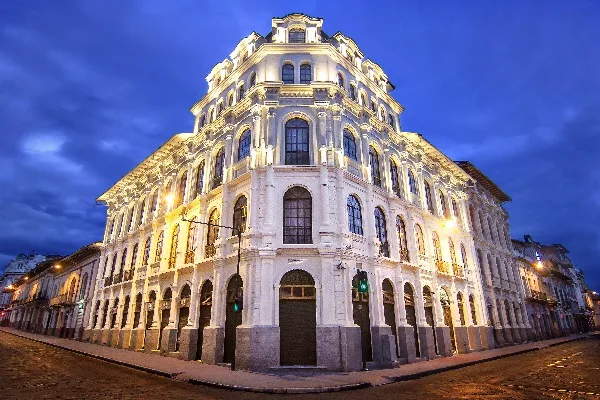Ecuador’s navy is plagued by corruption as 43 sailors are investigated for links to drug gangs
By Chris Dalby
Intelligence reports have revealed that troops within Ecuador’s navy have been regularly caught collaborating with leading criminal gangs, further exacerbating the country’s spiraling security crisis.
In the latest event connecting Ecuador’s navy to gangs, at least 43 sailors are under investigation for a range of crimes, including gang involvement and drug trafficking, according to intelligence reports cited by Ecuadorian newspaper Primicias.

Forty-three Ecuadorian sailors have been detained and are under investigation for possible links to criminal gangs.
Thirteen seamen are suspected of providing arms to some of Ecuador’s deadliest gangs, including the Choneros and the Chone Killers. A further nine are being investigated concerning the theft of 12 AK-47 rifles from a government warehouse. So far, 11 sailors have been discharged due to these investigations.
The same intelligence reports also stated that several Ecuadorean navy officers had been selling information to Colombian criminal groups, including the Oliver Sinisterra Front and the Urías Rondón Mobile Column, Primicias reported. These groups belong to the ex-FARC mafia, a loosely connected network of dissident groups once belonging to the now-demobilized Revolutionary Armed Forces of Colombia (Fuerzas Armadas Revolucionarias de Colombia – FARC).
Last January, an investigation into Choneros gang leader Junior Roldán, alias “JR,” found that two navy personnel had been working as his bodyguards.
With Ecuador seeing the third-highest number of cocaine seizures worldwide, navy troops have become increasingly valuable allies to organized crime.
“There has been a change … in the corruption of the armed forces as most of the cocaine now exits by sea and from the beaches,” Arturo Torres, an Ecuadorean journalist who accessed the intelligence reports, told InSight Crime. “These maritime spaces are controlled by the navy, who are in the ports, who decide about permits, whose ships transport cocaine.”
In December, navy corporal Jonathan Javier Gómez Coime was found moving 20 kilograms of cocaine from northern Ecuador to the southern province of Guayas in an official navy vehicle. And one navy officer told Primicias on condition of anonymity that Gómez Coime was part of a more comprehensive network within the navy that helped to transport cocaine within Ecuador and out to sea.
Last August, eight navy crew members were arrested on San Cristóbal Island, which is part of the Galapagos island chain far out in the Pacific Ocean. They were reportedly caught with a quantity of cocaine hidden inside their vessel.
Most weapons that end up in criminal hands are now being taken from navy arsenals, according to Torres. In the 2000s, navy and army weapons were bought or stolen for Colombian groups, such as the FARC or the National Liberation Army (Ejército de Liberación Nacional – ELN).
“But now, it’s more systematically the navy. I think a large portion of the weapons that end up with criminal gangs come from navy stocks,” he added.
Ecuador is not alone in having grappled with navy corruption. Last June, a scandal in the Mexican navy saw a number of troops arrested for selling weapons and uniforms to drug traffickers. In Peru, two naval officers were arrested in 2019 as part of a drug trafficking ring that used divers to attach packages of cocaine to the hulls of cargo ships.
The ability of navy assets to aid drug traffickers is particularly useful in Ecuador, given the importance of maritime trafficking routes leaving the country, as InSight Crime reported during a 2018 investigation. Cargo ships are routinely contaminated with cocaine at the port of Guayaquil in Ecuador before leaving for Europe. Motor boats or fishing vessels leave from a number of smaller ports, carrying cocaine to traffickers in Mexico or Central America.
___________________
Credit: InSightCrime


















